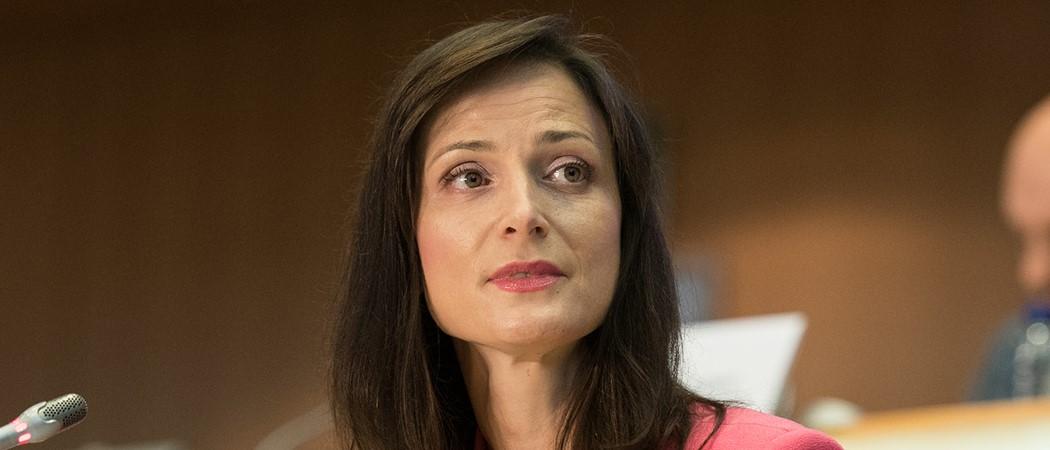After switching R&D resources to focus on COVID-19, Mariya Gabriel suggests upcoming EU long-term budget will defend €94B earmarked for research from 2021-2027

Mariya Gabriel. Photo: European Parliament.
The world should see a COVID-19 vaccine by the end of the year, and the EU’s revamped coronavirus recovery budget will include more money for research, says EU research commissioner Mariya Gabriel.
“I stay quite confident that by the end of the year, we’ll have a vaccine,” Mariya Gabriel told a web conference hosted by the think tank Friends of Europe on Thursday.
Vaccines usually take several years to develop, but Gabriel bases her ambitious assertion on the huge global fundraising drive for potential candidates. “We have two European companies that already announced that they will start clinical trials for the first 200 people in June,” said the commissioner.
That appears to refer to BioNTech and CureVac. Mainz-based BioNTech has already begun tests and expects first data by the end of June. CureVac, based in Tübingen, has also developed a vaccine and after receiving €80 million in backing from the European Investment Bank, is scheduled to begin its testing in June. Sanofi, the French pharmaceutical company, has two potential candidates that will go into trials in the second half of the year.
Gabriel appeared to overlook several UK vaccine candidates. Researchers involved in the most advanced project at Oxford University have raised hopes they can complete phase III development by September, leading on to an approval for emergency use. Others have expressed cautious optimism for finalising a vaccine in early 2021.
Gabriel said regulators will do all they can to slash the timeline for vaccine development, clearing away obstacles, while also ensuring safety requirements are met. The commissioner said that the EU would provide funding and a coordination role in European clinical trials.
The rush to develop a vaccine comes as the number of confirmed COVID-19 cases in Europe nears 1.5 million, with more than 140,000 deaths. More infections and deaths can’t be ruled out, as EU countries begin to ease lockdown restrictions in the coming months.
Turning her attention to funding in the next EU long-term budget, the commissioner said, “For me it will be quite important to see the [budget] for research reinforced.” Asked if “reinforced” meant more money for Horizon Europe, the next EU research programme - or merely saving it from cuts - Gabriel said “more”.
According to the EU’s seven-year budget proposal, published in 2018, Horizon Europe stands to receive €94.1 billion, a rise from €77 billion in the current seven-year programme, which ends in December 2020.
The European Parliament is calling for the new research budget to rise to €120 billion, whereas the latest EU budget negotiations placed the total at under €87 billion.
Gabriel’s words indicate the European Commission will defend the original €94.1 billion figure in its redrafted coronavirus recovery budget. The crisis has forced the EU executive to tear up its original budget plan, and instead propose to borrow hundreds of billions of euros to dull the devastating economic toll of the pandemic.
Commission president Ursula von der Leyen has pledged to turn the revamped budget, to be announced this month, into the “mothership” of economic recovery for the continent, and vowed to unleash a recovery fund of at least €1 trillion.
“It’s quite important to see leaders join words with actions,” Gabriel said. “I stand very firm that we need to have a very strong Horizon Europe programme, one with increased budget. My plea is that we think of the lessons learned from the crisis.”
Gabriel defended the EU response to the pandemic, saying initiatives on research were “fast and decisive”.
On Monday, an additional €675 million in research money was diverted into research on vaccines, diagnostics and therapeutics against COVID-19, bringing the total EU investment in pandemic R&D to €1 billion.





 A unique international forum for public research organisations and companies to connect their external engagement with strategic interests around their R&D system.
A unique international forum for public research organisations and companies to connect their external engagement with strategic interests around their R&D system.